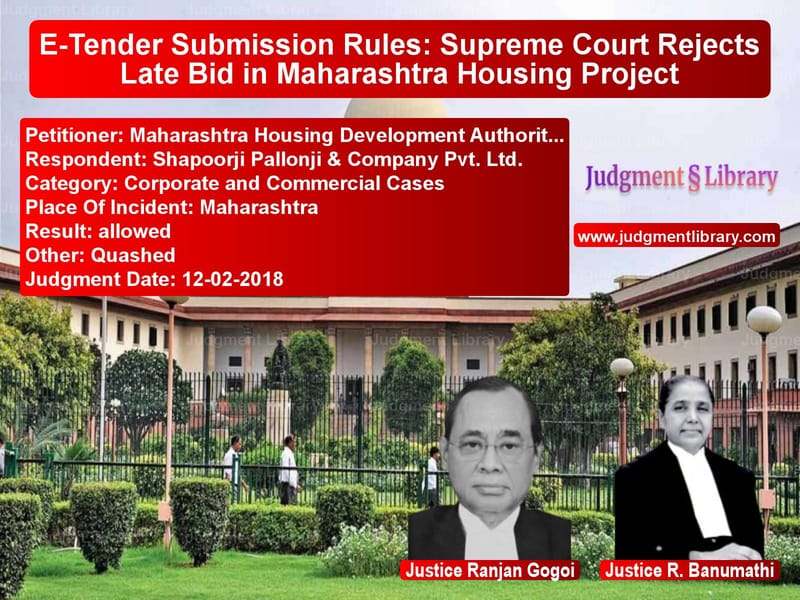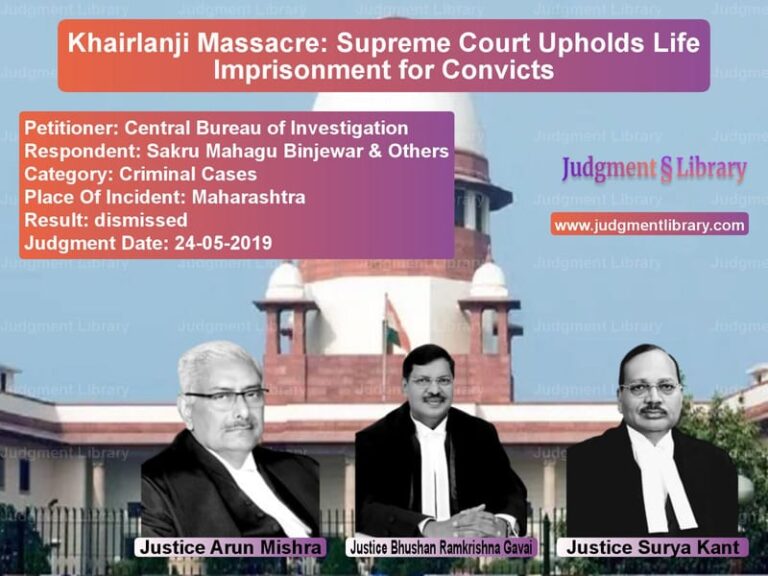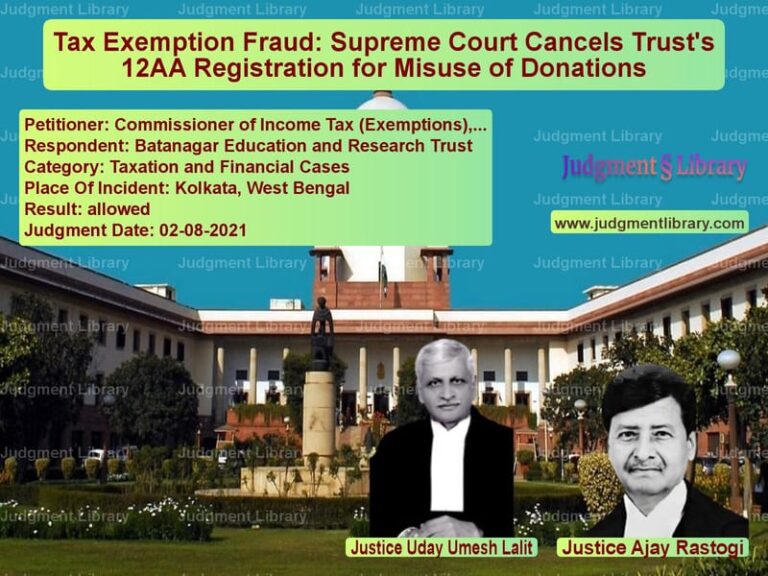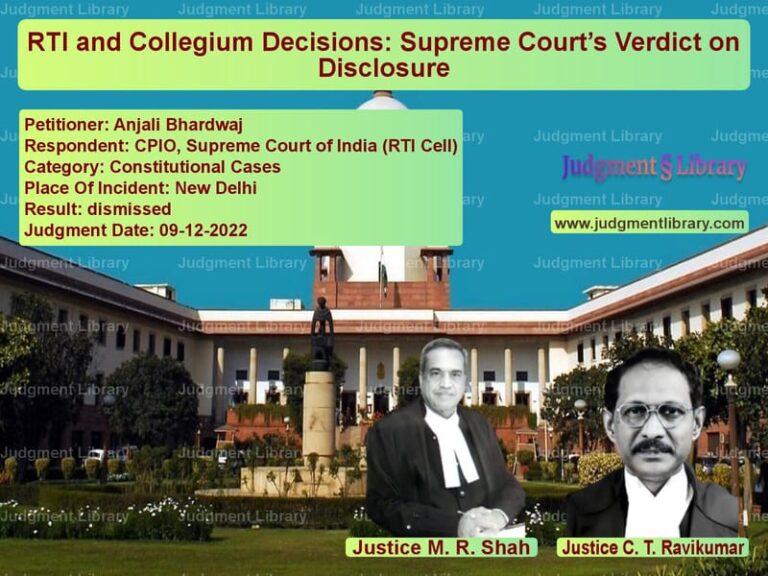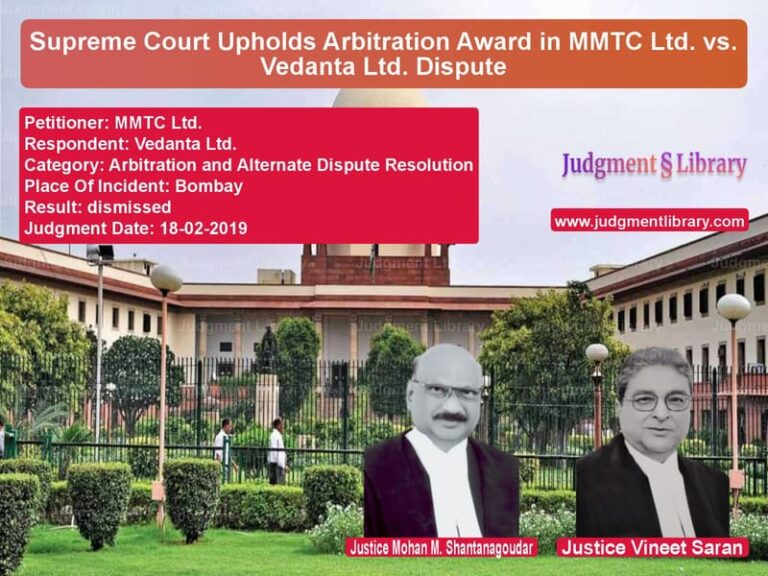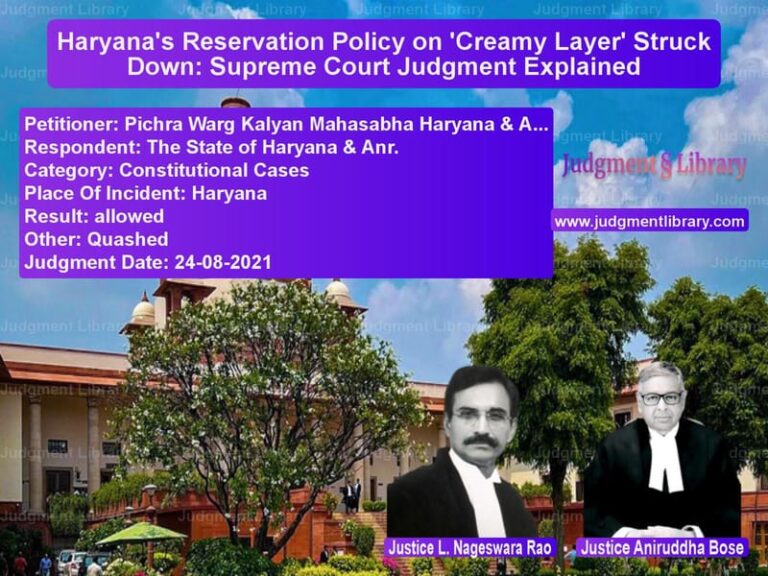E-Tender Submission Rules: Supreme Court Rejects Late Bid in Maharashtra Housing Project
The Supreme Court of India, in its judgment in Maharashtra Housing Development Authority vs. Shapoorji Pallonji & Company Pvt. Ltd., addressed a crucial issue regarding the validity of e-tender submissions and whether a bid that failed to receive system acknowledgment could be retrieved and considered. The ruling reinforced the principle that digital bidding procedures must be strictly adhered to and that non-compliance with established protocols cannot be rectified post facto.
Background of the Case
The Maharashtra Housing Development Authority (MHADA) had invited e-Tender bids for a redevelopment project involving technical designing, coordination, and construction of residential and commercial structures. The bidding process required applicants to submit their documents online, ensuring that they completed all steps, including pressing the ‘freeze button’ to confirm submission.
Shapoorji Pallonji & Company Pvt. Ltd. (the respondent) attempted to submit its bid at 12:16 PM on July 27, 2017, just before the deadline of 1:00 PM. However, it failed to receive an acknowledgment confirming submission. When the company approached the authorities, it was informed that the bid did not register in the system due to an apparent failure to press the ‘freeze button.’ This led the respondent to approach the Bombay High Court, which directed the authorities to retrieve the bid documents and consider them as a valid submission.
Key Legal Issues Considered
- Whether a bid that did not receive system acknowledgment could be retrieved and considered valid.
- Whether the NIC (National Informatics Centre) had the technical ability to retrieve an unsubmitted bid.
- Whether the Bombay High Court erred in directing authorities to process a bid that was deemed technically invalid.
Arguments Presented
Petitioner’s (MHADA) Arguments
- The bidding process was transparent and followed strict digital protocols.
- The failure to press the ‘freeze button’ meant that the bid was not formally submitted and could not be retrieved.
- The NIC, which maintained the bidding portal, confirmed that no system glitch had occurred.
- The High Court’s direction to retrieve and process the unsubmitted bid effectively granted the bidder a second chance, violating tender fairness principles.
Respondent’s (Shapoorji Pallonji & Co.) Arguments
- The company had completed the upload of its bid documents by 12:16 PM but failed to receive an acknowledgment.
- There was no fault on its part, and the bid should be retrieved to ensure fairness.
- The High Court’s directive was necessary to avoid an unjust outcome caused by technical barriers.
Supreme Court’s Observations
The Supreme Court carefully analyzed the affidavits and reports submitted by the NIC and noted:
“The NIC has stated that the data uploaded by the first respondent cannot be retrieved by the NIC and Maharashtra Housing Development Authority jointly or severally under any circumstances in the present e-Tendering system with prevailing Government of India Guidelines.”
The Court emphasized that:
“If the first respondent had uploaded the documents at 12:16 PM on July 27, 2017, and had not received the bid submission acknowledgment, it still had 44 minutes to contact the NIC for help, which was not sought.”
Final Judgment and Directions
- The Supreme Court set aside the Bombay High Court’s directive to retrieve and process the bid.
- The Court ruled that since the bid was not formally submitted, it could not be considered valid.
- The judgment reinforced that digital bidding procedures must be strictly followed, and errors in submission cannot be rectified post facto.
- The Court highlighted that allowing retrieval of an incomplete bid would undermine the integrity of e-tender processes.
Implications of the Judgment
This ruling has significant implications for government tenders and digital procurement systems. The Supreme Court has reinforced that:
- E-tender procedures must be strictly followed, with no scope for leniency if steps are missed.
- Bid submissions must be confirmed through system-generated acknowledgments to be considered valid.
- Technical issues should be immediately reported to the designated authorities before the deadline.
- Court interventions should not override established tender protocols to ensure fairness for all participants.
Conclusion
The Supreme Court’s judgment in this case sets a clear precedent that e-tendering procedures must be strictly adhered to and that bids not acknowledged by the system cannot be retrieved or considered valid. The ruling ensures that digital procurement remains transparent, fair, and free from post-deadline manipulations. By reinforcing the finality of submission protocols, the judgment upholds the integrity of electronic tendering in India.
Petitioner Name: Maharashtra Housing Development AuthorityRespondent Name: Shapoorji Pallonji & Company Pvt. Ltd.Judgment By: Justice Ranjan Gogoi, Justice R. BanumathiJudgment Date: 12-02-2018
Don’t miss out on the full details! Download the complete judgment in PDF format below and gain valuable insights instantly!
Download Judgment: Maharashtra Housing vs Shapoorji Pallonji & Supreme Court of India Judgment Dated 12-02-2018.pdf
Direct Downlaod Judgment: Direct downlaod this Judgment
See all petitions in Company Law
See all petitions in Corporate Compliance
See all petitions in unfair trade practices
See all petitions in Judgment by Ranjan Gogoi
See all petitions in Judgment by R. Banumathi
See all petitions in allowed
See all petitions in Quashed
See all petitions in supreme court of India judgments February 2018
See all petitions in 2018 judgments
See all posts in Corporate and Commercial Cases Category
See all allowed petitions in Corporate and Commercial Cases Category
See all Dismissed petitions in Corporate and Commercial Cases Category
See all partially allowed petitions in Corporate and Commercial Cases Category

